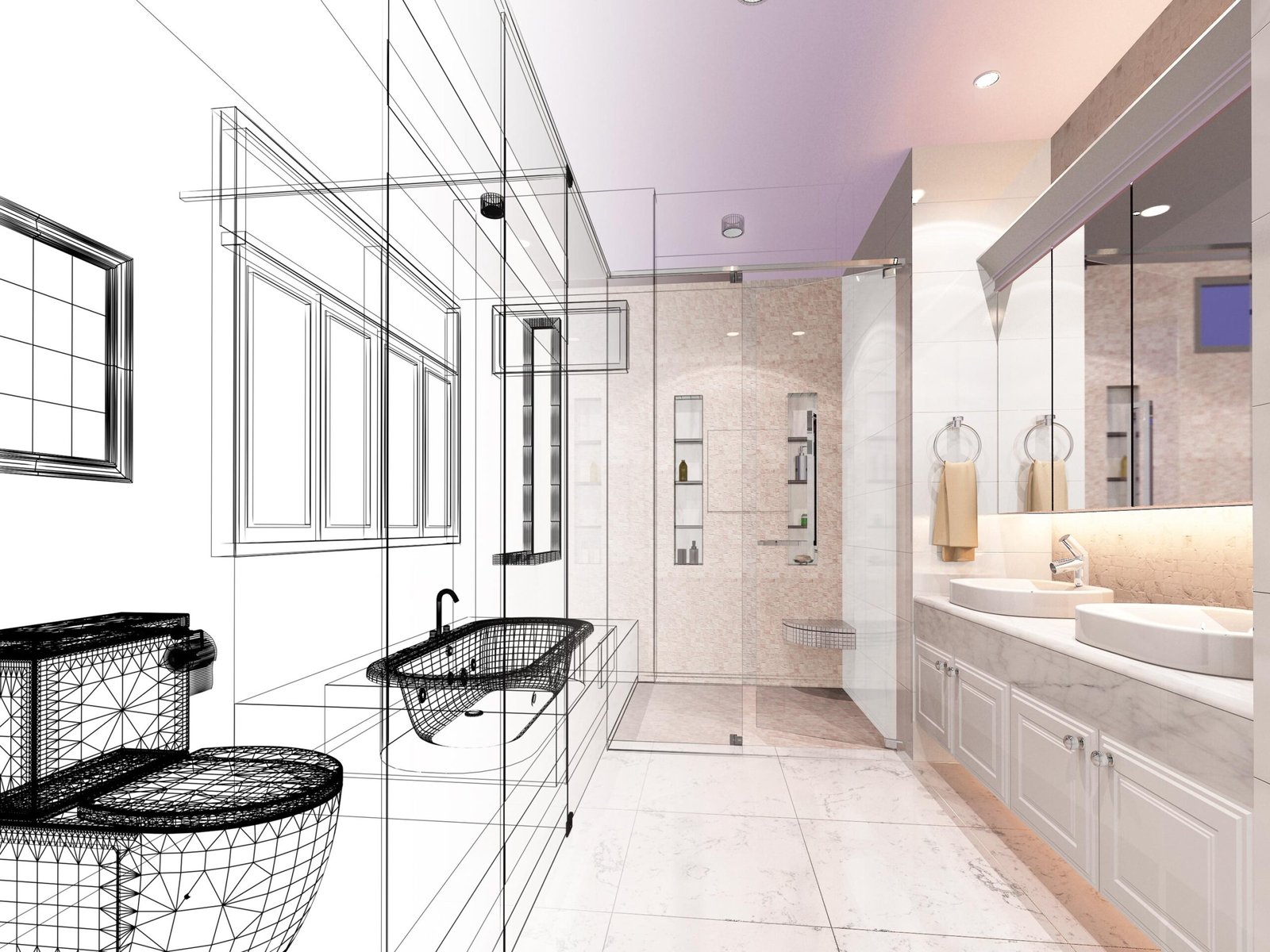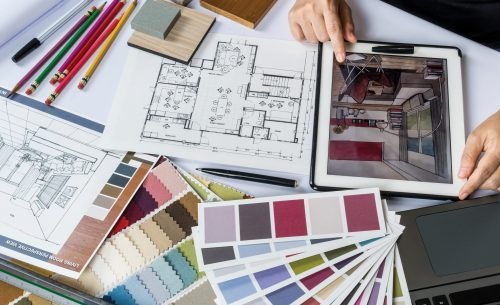
The 10 Most Important Tips for Designing Bathrooms
Designing bathrooms involves balancing aesthetics, functionality, and comfort. Here are ten essential tips to help you create a bathroom that is both beautiful and practical:
1. Plan the Layout Wisely
A well-thought-out layout is crucial for a functional bathroom. Consider the placement of fixtures such as the toilet, sink, and shower or bathtub. Ensure there is enough space for movement and storage. A good layout maximizes space, especially in small bathrooms.
2. Prioritize Storage
Adequate storage is essential in a bathroom to keep it organized and clutter-free. Incorporate cabinets, shelves, and vanity units that offer sufficient space for toiletries, towels, and cleaning supplies. Consider built-in storage solutions to make the most of the available space.
3. Choose Durable Materials
Bathrooms are exposed to moisture and temperature fluctuations, so it’s important to choose materials that are durable and water-resistant. Opt for high-quality tiles, countertops, and fixtures that can withstand the bathroom environment. Porcelain, ceramic, and natural stone are excellent choices for flooring and walls.
4. Focus on Lighting
Proper lighting is vital in a bathroom for both functionality and ambiance. Combine natural light with artificial lighting to create a well-lit space. Use a mix of task lighting around mirrors, ambient lighting for overall illumination, and accent lighting to highlight features. Consider dimmable lights for flexibility.
5. Ventilation is Key
Good ventilation prevents mold, mildew, and moisture damage. Ensure your bathroom has an efficient exhaust fan to remove humidity and odors. If possible, incorporate windows that can be opened to allow fresh air to circulate.
6. Select the Right Fixtures
Choose fixtures that complement the overall design and meet your needs. Consider the style, size, and finish of faucets, showerheads, and towel racks. Modern, sleek fixtures can give a contemporary look, while vintage-style fixtures can add charm to a traditional bathroom.
7. Pay Attention to Water Efficiency
Opt for water-efficient fixtures to reduce water consumption and lower utility bills. Look for toilets, faucets, and showerheads with Water Sense certification or similar ratings. These fixtures provide excellent performance while conserving water.
8. Incorporate a Neutral Color Palette
Neutral colors create a timeless and calming atmosphere in a bathroom. Shades of white, beige, gray, and soft pastels can make the space feel larger and more inviting. You can add pops of color through accessories, towels, and decor items to personalize the space.
9. Add Personal Touches
Incorporate personal touches to make the bathroom feel unique and inviting. Consider adding artwork, plants, or decorative accessories that reflect your style. A stylish mirror, elegant hardware, and chic textiles can elevate the design and add character.
10. Think About Accessibility
Designing with accessibility in mind ensures that the bathroom is user-friendly for everyone, including children, elderly individuals, and those with disabilities. Incorporate features such as grab bars, non-slip flooring, and walk-in showers. Ensure there is ample lighting and easy-to-reach storage.
Designing a bathroom requires careful consideration of layout, materials, lighting, and fixtures. By prioritizing functionality and aesthetics, you can create a space that is both practical and visually appealing. Whether you are remodeling an existing bathroom or designing a new one, these tips will help you achieve a beautiful and functional bathroom that meets your needs and preferences.






